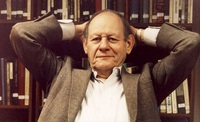Oct 29 2012
Integrative Medicine Propaganda
While I am at home preparing for the “perfect storm” – an Autumn hurricane that is barreling down on the northeast – I found the following letter in my e-mail:
I am appalled at what I am reading. How is integrative medicine quackery? Have you ever visited a Naturopathic Doctor, or an integrative Doctor or practitioner? I bet you know not one thing concerning not only their practice or about what they do to treat diseases. They understand that sometimes pharmaceutical drugs and surgery are necessary, but understand that sometimes they can cause more harm than good.
For some people, not having their nutrients at optimal levels can cause a series of symptoms to exhibit their “deficiency”. For some people toxins do cause problems and therefore need to detoxify. For instance, a cancer patient went to see a naturopathic doctor and found that she was being exposed to large amounts of copper which not only lead to her cancer but also to its persistence. Some people do have food sensitivities that can cause to lymph related cancers.
You may say that nothing that they do is scientific but how can you prove that?
Naturopathic Doctors have always treated people with “Adrenal Fatigue”. You may say that this is not a disease, and that the Adrenals can deal with bountiful amounts of stress. But if Adrenal Fatigue is not a scientifically sound nor is it a disease, then please tell me why has The Journal of Psychosomatic Medicine found that patients with CFS, have an altered Cortisol and DHEA diurnal rhythm? And why has McGill University, a prestigious academic institution, found the same results, as people who suffer from fatigue have altered or varied Cortisol and DHEA diurnal rhythm.
These studies are new studies, but Naturopathic Doctors have been treating them for thirty years or more?
If a Medical Doctor says in their Hippocratic oath that they are to first do no harm, why do they sometimes prescribe medications which at the end causes more harm.
A statin drug was recently taken of the market because although it was approved, they found that it now causes bladder cancer.
Hippocrates said, “Let thy food be thy medicine, and thy medicine be thy food”
If an apple a day keeps the Doctor away, then why don’t we suggest nutrition.
Naturopathic Doctors are unscientific. If the statement be then they would not use blood test and other means to measure biochemical substances and use what they can to treat it.
There is a lot of Journals and Papers published on Orthomolecular Medicine, and CAM. Are these journals not scientific.
The Tripedia Vaccine for Pertussis has been taken off the market. It was noted to the FDA that multiple adverse effects included autism, and SIDS.
If certain drugs can cause carcinogenicities, liver failure, and other nasty side affects why should we take them when there are safer alternatives which can perform the task?
Before you open your traps on making statements that CAM and IM as being pseudoscientific, go see someone who has treated the ROOT cause of ailments and pathologies.
If you want scientific research I can give them to you!
Sincerely,







